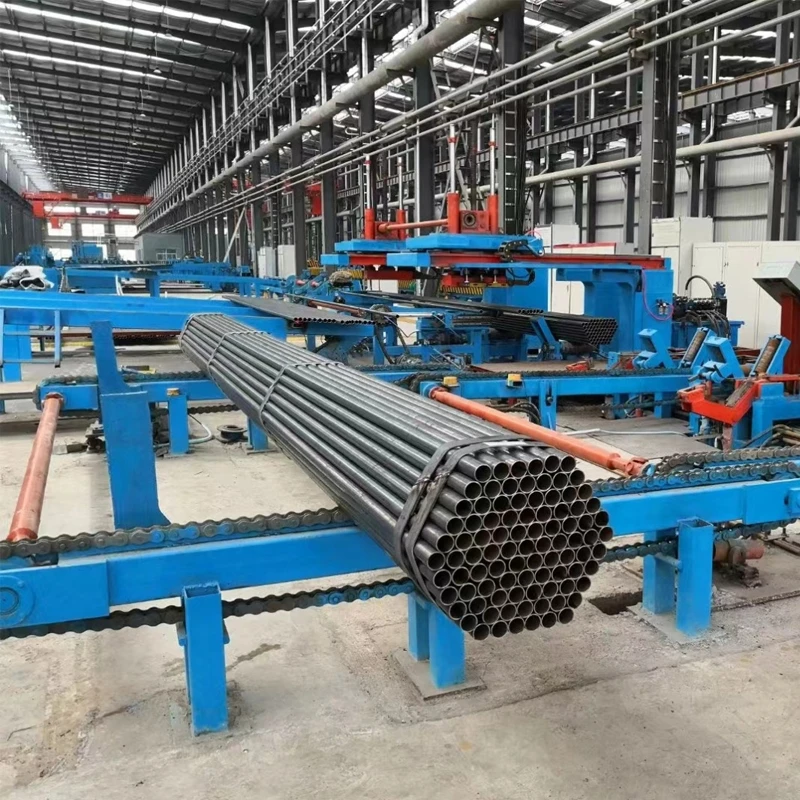Profile Shaping Equipment for Efficient Manufacturing Solutions and Custom Designs
The Evolution and Importance of Profile Forming Machines
In the realm of modern manufacturing, efficiency, precision, and innovation stand as cornerstones of operational success. Among the myriad of technological advancements that have propelled industries forward, profile forming machines have emerged as crucial tools in the production of various metal profiles. These machines enable the creation of complex shapes and designs that serve diverse applications in industries ranging from construction and automotive to aerospace and furniture manufacturing.
Profile forming machines are designed to transform flat metal sheets or strips into specific cross-sectional shapes through a process known as roll forming. This process involves feeding the material through a series of rollers, each progressively bending the strip into the desired profile. The flexibility of this machinery allows for the production of an extensive range of profiles, including channels, angles, and even more intricate designs tailored to meet specific customer requirements.
One of the significant advantages of using profile forming machines is their efficiency. Traditional methods of shaping metal often involve labor-intensive procedures that can be time-consuming and prone to human error. In contrast, profile forming machines automate much of this process, significantly reducing production time and minimizing errors. This automation not only speeds up the manufacturing process but also results in consistent quality, which is vital for industries where precision is critical.
Moreover, profile forming machines contribute to sustainability within the manufacturing sector. The efficiency of the roll forming process leads to less waste material compared to other methods, such as cutting or machining. Additionally, these machines can work with a variety of materials, including steel, aluminum, and other alloys, allowing manufacturers to select materials based on their sustainability profiles and the environmental impact of their production processes.
profile forming machine

The versatility of profile forming machines extends beyond just the types of materials they can process. They are also adaptable to produce a wide array of products. For instance, in the construction industry, these machines are instrumental in creating structural components such as beams and supports, which form the backbone of buildings and infrastructure. Similarly, in the automotive industry, profile forming machines play a crucial role in manufacturing components like chassis, brackets, and trim parts that must meet strict safety and design standards.
Notably, advancements in technology have allowed for even greater innovation within the realm of profile forming. The integration of computer numerical control (CNC) technology has further enhanced the capabilities of these machines. CNC profile forming machines can be programmed to execute complex profiles with a high degree of accuracy, enabling manufacturers to respond swiftly to design changes and produce customized products efficiently. This adaptability is increasingly valuable in a market that demands rapid turnaround times and tailored solutions.
Furthermore, as industries continue to evolve, the demand for lightweight and high-strength materials has risen. Profile forming machines are well-suited to meet this demand, as they can accommodate advanced materials that offer enhanced performance characteristics. This ability to work with new materials not only supports innovation but also plays a pivotal role in driving advancements in fields such as renewable energy and transportation.
In conclusion, profile forming machines represent a vital component of contemporary manufacturing processes. Their efficiency, versatility, and adaptability position them as key drivers of innovation across various industries. As technology continues to advance, it is likely that we will see further enhancements in profile forming machinery, making it an essential asset for manufacturers aiming to enhance productivity, reduce waste, and deliver high-quality products. The future of profile forming is bright, and its impact on the manufacturing landscape will undoubtedly shape the industries of tomorrow.
-
High Frequency Straight Seam Welded Pipe Production Line-BzZhou Xinghua Machinery Equipment Manufacturing Co., LTD.|line pipe steel&welded gas pipeNewsJul.30,2025
-
High Frequency Straight Seam Welded Pipe Production Line-BzZhou Xinghua Machinery Equipment Manufacturing Co., LTD.|High Precision&Automated SolutionsNewsJul.30,2025
-
High Frequency Straight Seam Welded Pipe Production Line - BzZhou Xinghua Machinery Equipment Manufacturing Co., Ltd.NewsJul.30,2025
-
High Frequency Straight Seam Welded Pipe Production Line-BzZhou Xinghua Machinery Equipment Manufacturing Co., LTD.|Precision Welding, High EfficiencyNewsJul.30,2025
-
High Frequency Straight Seam Welded Pipe Production Line|BzZhou Xinghua|Precision Welding&EfficiencyNewsJul.30,2025
-
High Frequency Straight Seam Welded Pipe Production Line - BzZhou Xinghua|Precision Engineering&EfficiencyNewsJul.30,2025


